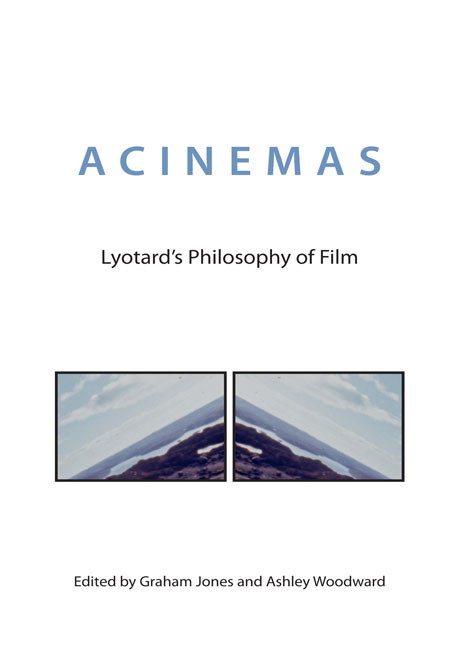Book contents
- Frontmatter
- Contents
- Acknowledgements
- Abbreviations
- Translators’ Note
- I Openings
- II Lyotard's Essays on Film
- III Approaches and Interpretations
- IV Applications and Extensions
- 11 Discourse, Figure, Suture: Lyotard and Cinematic Space
- 12 On Dialogue as Performative Art Criticism
- 13 Give Me a Sign: An Anxious Exploration of Performance on Film, Under Lyotard's Shadow
- 14 How Desire Works: A Lyotardian Lynch
- 15 Aberrant Movement and Somatography in the Hysterical Comedies of Roméo Bosetti
- Appendices
- Notes on Contributors
- Index
14 - How Desire Works: A Lyotardian Lynch
from IV - Applications and Extensions
Published online by Cambridge University Press: 23 June 2018
- Frontmatter
- Contents
- Acknowledgements
- Abbreviations
- Translators’ Note
- I Openings
- II Lyotard's Essays on Film
- III Approaches and Interpretations
- IV Applications and Extensions
- 11 Discourse, Figure, Suture: Lyotard and Cinematic Space
- 12 On Dialogue as Performative Art Criticism
- 13 Give Me a Sign: An Anxious Exploration of Performance on Film, Under Lyotard's Shadow
- 14 How Desire Works: A Lyotardian Lynch
- 15 Aberrant Movement and Somatography in the Hysterical Comedies of Roméo Bosetti
- Appendices
- Notes on Contributors
- Index
Summary
It is necessary to think of desire as an energy that works (Freud is explicit about this: I have in mind the brief note at the end of the chapter on the dream work, where Freud reproaches other analysts with only paying attention to the manifest content and the latent thoughts, whereas the only important thing is the work, how one passes from the one to the other, how desire works).
Jean-François Lyotard (LRG)It's better not to know so much about what things mean or how they might be interpreted or you'll be too afraid to let things keep happening.
David LynchIt has long been recognised that film may be approached through the model of the dream (the latter itself being, as Freud noted, the royal road to the unconscious), and this explains why psychoanalytic theory – among other things, a discourse on the function and meaning of dreams – has been so influential in film theory. It is hardly surprising then that the films of David Lynch, which are often praised for their overtly dream-like qualities, should have attracted the attention of so many critics armed with psychoanalytical tools of dissection. What we propose here is a challenge to the dominant interpretation of the film works of David Lynch – a challenge that turns around a dispute on how to interpret their dream-like aspects. The dispute is between Lacan and Lyotard: in effect, a dispute in interpretations of Freud, and of the unconscious and desire. What is more widely at stake in this dispute is the nature of art, and in this particular case, the nature of film as an art.
When critics and aficionados liken Lynch's films to dreams they are usually referring to either one or both features associated with the oneiric: first, that dreams seem illogical in form and content (wherein things change shape or swap identities, strange juxtapositions occur, and the normal associations of time and space are transgressed or suspended), and secondly, that dreams appear highly resistant to sense (that they seem to involve many things without being about anything obvious – i.e. that there is no consistency, coherence or unity to their ‘meaning’; they seemingly have significance but not signification).
- Type
- Chapter
- Information
- AcinemasLyotard's Philosophy of Film, pp. 163 - 179Publisher: Edinburgh University PressPrint publication year: 2017



